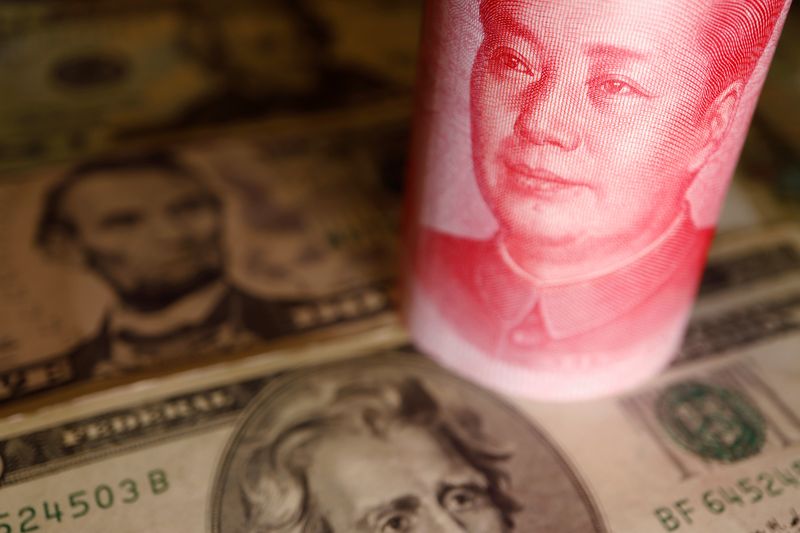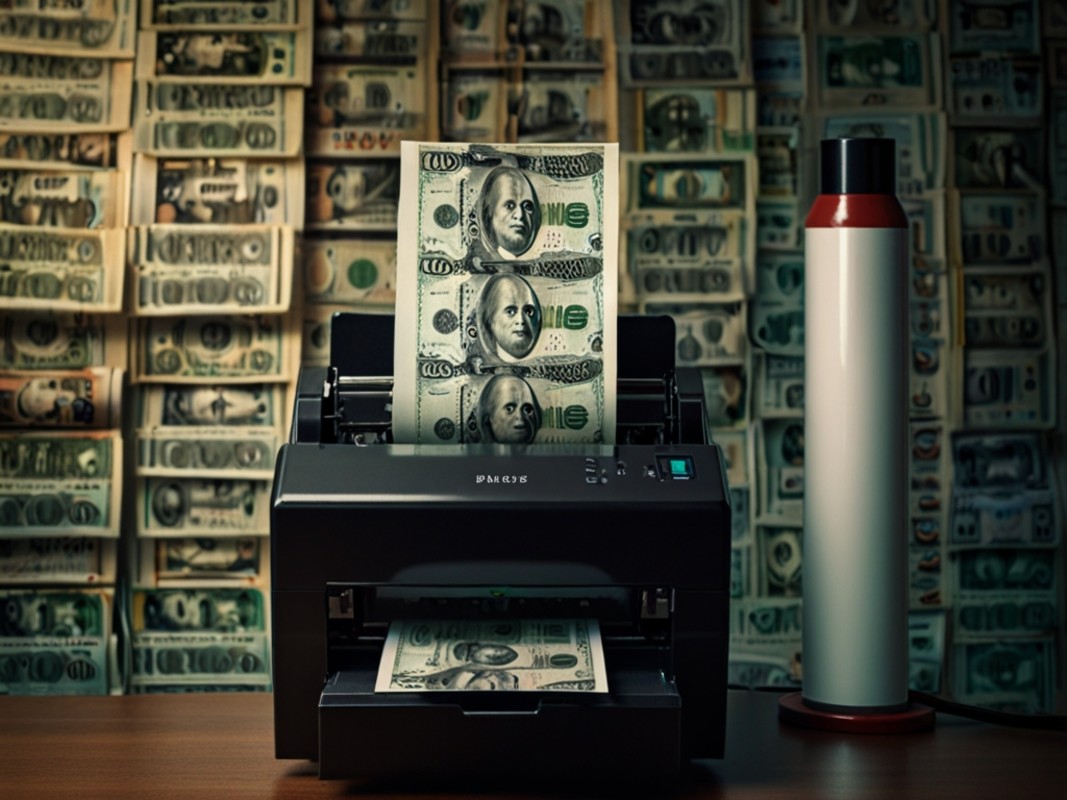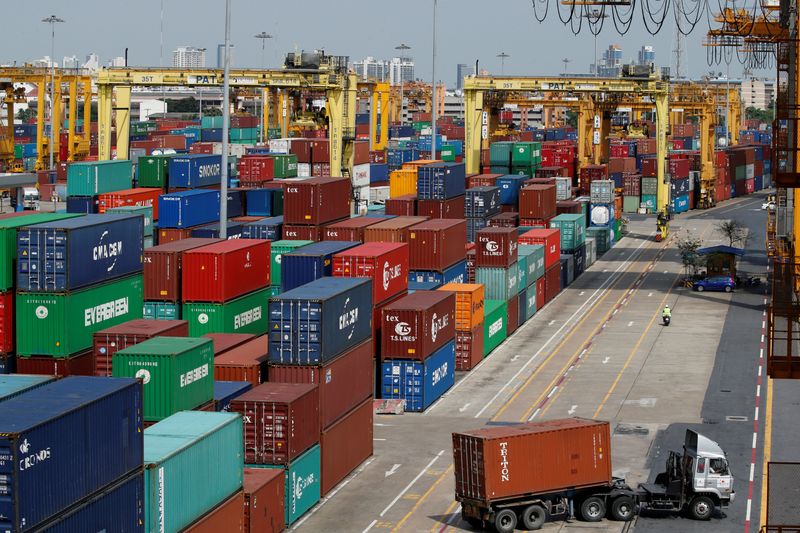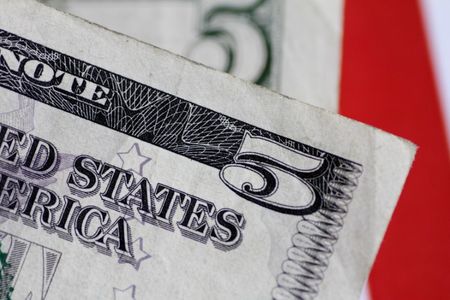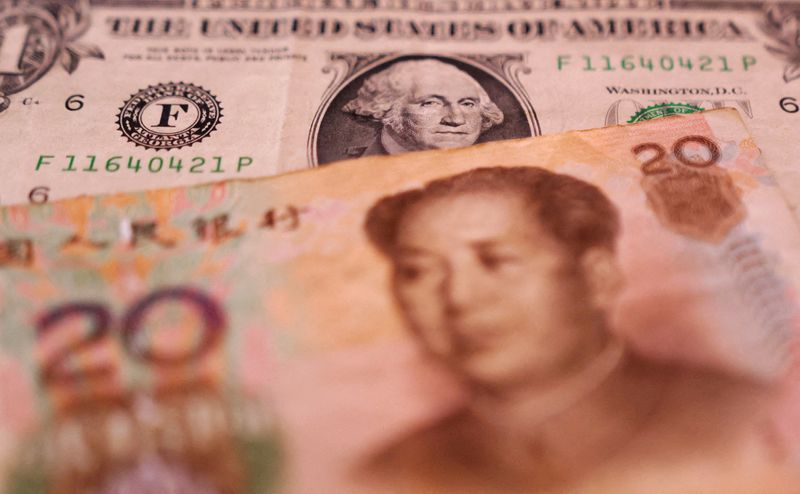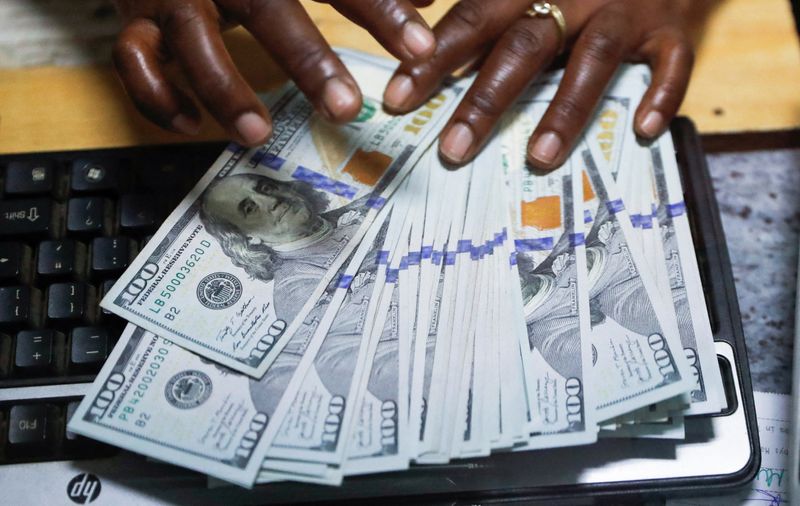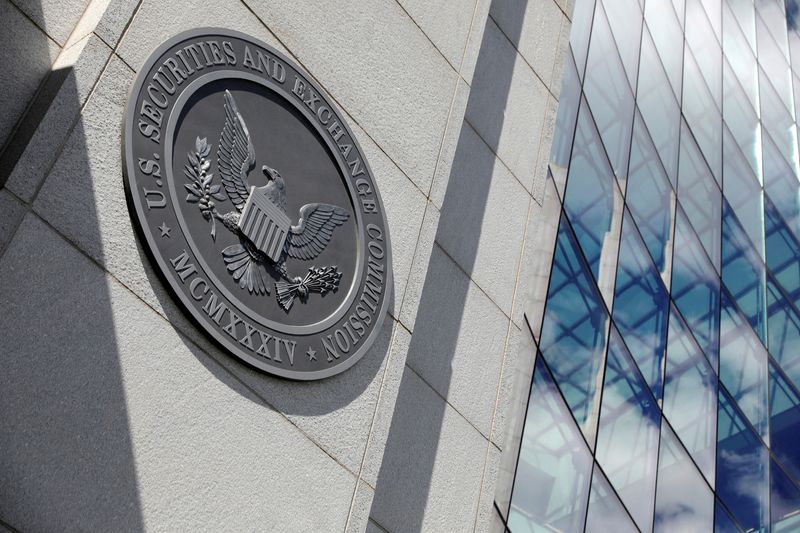Month: September 2024
Dollar gains as Fed’s Powell adopts hawkish tone on economy
Post Content
AARON: Ocean’s DATUM Is Tackling Bitcoin’s Most Pressing Problem
It’s difficult to find a more fundamental threat to Bitcoin’s continued existence than mining centralization. If —say— there are only a few mining pools, there is a very real possibility that these organizations face regulatory pressure of the kind that exchanges have also had to deal with: they could be forced to only include KYC’ed transactions into blocks. Since censorship resistance is arguably its core value proposition, I seriously doubt that Bitcoin would, in this scenario, have much long-term viability at all.
To that end, it was great to see Ocean launch DATUM (Decentralized Alternative Templates for Universal Mining) this weekend. Similar to Stratum V2 (implemented by Demand Pool), DATUM allows miners (or: “hashers”) to select the transactions they include in the blocks they find, while still splitting the block reward with other users of the pool. In other words, hashers get the benefit of pooled mining, without having to outsource transaction selection to the Ocean pool operators, thus making it more difficult to apply regulation. (It’s much easier to regulate a few big businesses —mining pools— in a handful of jurisdictions, than it is to regulate many smaller businesses and individuals —hashers— from around the world.)
Of course, the adversarial mindset will recognize that this doesn’t in itself solve the problem of mining centralization in its entirety. Most obviously, draconian lawmakers could ultimately just ban this type of pooled mining altogether. Besides, it’s not really clear that there is a demand from hashers to construct their own blocks in the first place– though that might of course quickly change if and when there in fact is regulatory pressure that stops pools from including certain transactions in blocks. (And Ocean is providing an incentive for hashers to select their own transactions by cutting fees for those that make use of the new feature.)
Either way, DATUM is an important step in the right direction. If nothing else, it should take away a lot of the concerns of Ocean themselves refusing to include certain “spam” transactions in their blocks: now every hasher can decide for themselves what transactions they do and do not want to include.
The more difficult it is to thwart Bitcoin’s censorship resistance, the brighter Bitcoin’s future looks.
Inside Lebanon’s Currency Crisis: How Hyperinflation Feels
Lebanon is back in the headlines as the conflict in the Middle East intensifies. Before these latest developments, Lebanon had already become a symbol of how quickly a seemingly stable society can descend into chaos.
If you follow major events in the global economy, you’ll probably recall that Lebanon’s recent past serves as a vivid example of what a full-blown currency collapse looks like in a modern, advanced economy. While there are some great books that describe hyperinflation in detached, academic terms, what’s often missing is the human story – what it’s actually like to be a normal, productive person with a family and a bank account, and to live through the collapse of your country’s currency.
For a while now, I’ve known that my friend Tony Yazbeck, co-founder of The Bitcoin Way, had experienced this reality. But it wasn’t until I watched this interview with him that I realized how valuable his story is for everyone to hear. Tony’s story offers a rare, personal glimpse into what it means when your country’s banking system disintegrates, when you lose access to your savings, when food prices rise 10-fold in a few months, and when even basic necessities like medicine and fuel become luxuries.
I asked Tony if he could explain not only why Lebanon collapsed, but also how bitcoin could have been a lifeline in such a dire situation.
Lebanon: A country on the brink
Before its economic collapse, Lebanon was a vibrant, cosmopolitan country, often called the “Paris of the Middle East.” Its economy thrived on banking, tourism, and services, positioning it as a bridge between East and West. For Tony, this prosperity wasn’t an illusion—it was his daily life. “My life in Lebanon was extraordinary,” he recalls. “I ran three thriving businesses and lived a luxurious lifestyle. Whether it was the latest cars, the best restaurants, or the hottest clubs, Beirut had it all.”
Yet beneath the surface, cracks were forming. Lebanon’s banking sector, once a source of pride, was built on unsustainable practices, and the country was drowning in debt. For years, Lebanon’s central bank had pegged the Lebanese pound to the U.S. dollar at an artificially high rate, creating a false sense of stability.
This currency peg required constant inflows of dollars to maintain. When those inflows dried up, the house of cards collapsed.
In 2019, Lebanon’s banks began restricting access to savings, imposing informal capital controls without any legal framework. “Overnight, people lost access to their funds,” Tony says. “You couldn’t withdraw your own money, and even if you could, it was in Lebanese pounds that were rapidly losing value.”
For those unfamiliar with a currency crisis, the limitation of bank withdrawals is one of the first signs that the system is failing. The government and banks try to delay the inevitable by locking dA look at the lived experience of going through hyperinflation in Lebanon.own money in the system. By then, it’s too late.
From thriving businesses to $70 in hand
In early 2020, Lebanon defaulted on its foreign debt, and the value of the Lebanese pound plummeted. Hyperinflation set in, destroying the purchasing power of ordinary people.
Tony watched helplessly as his savings evaporated and his businesses crumbled. “I went from being a successful entrepreneur to having just $70 to my name in what felt like the blink of an eye,” he recalls. “I couldn’t pay rent, school fees, or even afford basic groceries.”
Hyperinflation took hold with shocking speed. “A loaf of bread that once cost 1,500 LBP shot up to over 30,000 LBP within months,” Tony explains. Fuel prices were even worse. “In early 2023, a gallon of gas went from 25,000 LBP to over 500,000 LBP in just a few weeks. It was impossible to keep up with the prices.”
The destruction wasn’t limited to material wealth; the psychological toll was immense. Tony describes the anxiety and panic that came with watching his hard-earned success disappear. “For the first time in my life, I didn’t know what to do. I felt completely helpless.”.
A fractured civil society
As Lebanon’s currency collapsed, so did its social fabric. People who once lived comfortable, middle-class lives suddenly found themselves struggling for survival. Basic goods became scarce, and the price of everyday items skyrocketed.
Power dynamics within communities shifted as those who controlled essentials like food and fuel gained disproportionate influence. “There were reports of gangs taking over neighborhoods, controlling access to goods and demanding protection fees,” Tony recalls.
Even electricity became a luxury. With the national grid in shambles, most people had to rely on private generators, but the cost of running them was astronomical. “Monthly generator fees jumped from 200,000 LBP to over 4,000,000 LBP,” Tony explains. Many families were forced to live without power for long stretches of time.
In response to the crisis, people turned to alternative forms of exchange. Bartering became common, with people trading goods and services directly. “If you couldn’t pay in cash, you might offer plumbing work in exchange for groceries,” Tony says. The U.S. dollar, already widely used before the collapse, became the default currency for many transactions. Digital currencies, and especially stable coins like Tether (USDT), also gained traction as people sought ways to preserve value outside the collapsing banking system.
What could have been: Bitcoin as a lifeline
As Tony recounts the collapse, questions loom large: Could this have been prevented? Or at the very least, could individuals have somehow protected themselves better? For Tony, the answer is clear: Yes – with access to bitcoin, many of the worst effects of the crisis might have been avoided.
“If I had known about bitcoin before the crisis, it could have saved me,” Tony says without hesitation. “Bitcoin would have given me a way to store value outside the banking system, which completely failed. I wouldn’t have been locked out of my own savings, and I could have preserved my wealth as the Lebanese pound collapsed.”
Bitcoin is immune to the kind of capital controls Lebanon’s banks imposed in 2019. No government or bank can freeze your bitcoin or restrict access to it. In a country where the banking system became a trap, bitcoin would have provided a way out.
Even as Lebanon’s currency lost over 90% of its value, bitcoin held its purchasing power globally. “Bitcoin isn’t tied to any government or central bank, so it can’t be manipulated the way the Lebanese pound was,” Tony explains. “It’s a hedge against hyperinflation, which would have been critical when prices were doubling and tripling every few months.”
Bitcoin’s status as a digital bearer asset would have been equally important. “When cash becomes worthless and banks stop functioning, how do you pay for things? How do you trade?” Tony asks.
In Lebanon, bartering and informal exchanges became necessary for survival. In many situations, bitcoin may have served as a viable alternative to barter, worthless Lebanese pounds, and U.S. dollars that were difficult to obtain.
Lessons for the world
Lebanon’s crisis offers a stark warning to the rest of the world. While many people in developed countries believe that their economies are too stable to collapse in such a way, Tony’s experience should give us pause. “What happened to me could happen anywhere,” he warns. “Don’t think you’re immune just because you live in a so-called stable country. The mechanics of fiat currency are the same everywhere.”
Tony points to the U.S. as an example of a country that is walking the same dangerous path as Lebanon. “The U.S. national debt now exceeds $35 trillion. Since 1971, when the dollar was taken off the gold standard, the money supply has increased by over 8,000%. That kind of money printing can’t go on forever.”
While the U.S. benefits from being the issuer of the world’s reserve currency, that status isn’t guaranteed indefinitely. “All fiat currencies are headed to zero eventually,” Tony cautions. “Some will fail sooner than others, but they will all fail. The U.S. dollar might be the last to go, but its turn is coming.”
The lessons from Lebanon’s collapse are clear: Protect your wealth before a crisis hits, and don’t assume that your government or banking system will be there to save you when things go south. For Tony, that means turning to bitcoin. “Bitcoin is the only asset that’s truly un-confiscatable,” he says. “It’s the only way to escape a broken system.”
A new mission to rebuild with bitcoin
In the aftermath of Lebanon’s collapse, Tony has dedicated his life to helping others avoid the same fate. He founded The Bitcoin Way, a bitcoin education and technical services business designed to teach people how to use bitcoin to protect themselves from currency crises. “The crisis forced me to study and understand money,” Tony says. “I realized that the fiat system is a scam, designed by thieves to steal and control us. Bitcoin is the solution.”
Every day, Tony educates his clients about how to take control of their financial future using bitcoin. “Once you understand how bitcoin works, you see the flaws in traditional fiat systems,” Tony explains. “You learn how to manage your assets securely, make transactions independently of banks, and protect your wealth from inflation and economic instability.”
The road ahead
Tony believes that the collapse of the Lebanese pound was avoidable, but that would have required structural reforms that never came. “If Lebanon had tackled corruption, maintained transparency, and adjusted the currency peg responsibly, things might have turned out differently,” he says.
But given the deep-rooted corruption in Lebanon’s political and financial systems, the collapse was almost inevitable.
As Tony reflects on his experience, he sees parallels between pre-crisis Lebanon and the current state of many developed economies. “We’re seeing the same issues – rising debt, unsustainable monetary policies, and corrupt institutions,” he says.
The warning signs are there, but many people ignore them, believing that their country is somehow different.
For those who are paying attention, Tony offers practical advice. “Start educating yourself about bitcoin now, before it’s too late,” he urges. “Diversify your assets and don’t rely on fiat currency to preserve your wealth. The mechanics of hyperinflation don’t change just because you live in a wealthy country.”
Lebanon’s collapse is not just a cautionary tale for people living in developing economies. It’s a wake-up call for the entire world.
As governments continue to print money at unprecedented rates, the risk of a global currency crisis grows. Bitcoin offers a way out – an inflation-proof alternative that can protect the wealth of individuals when fiat currencies fail.
Tony’s experience is a stark reminder of the fragility of fiat systems and the importance of financial sovereignty. “With bitcoin in your custody, you have the power to protect yourself from corruption, manipulation, and inflation,” Tony says.
“You don’t need permission from a bank or a government to manage your own money. And that’s exactly what makes bitcoin the ultimate tool for financial freedom.”
This is a guest post by Dave Birnbaum. Opinions expressed are entirely their own and do not necessarily reflect those of BTC Inc or Bitcoin Magazine.
NIKOLAUS: Business Insider Says Trump And Harris Both Courting The Bitcoin Vote, But Reality Says Otherwise
WHAT WE’RE READING: Business Insider
Business Insider published a new report today on where Bitcoin currently stands in regards to the upcoming U.S. presidential election, with exactly what you would expect from a left leaning mainstream media outlet. The article states that “Trump and Harris have different reasons to try to attract the crypto community”, and while I agree it is true that it would be good for both candidates to win over this vote, only one of them has actually put in the work to do so.
The article begins by noting how Bitcoin, and cryptocurrency at large, is not at the top of the list of priorities for most voters nationwide, which I actually believe to be true. Earlier this summer I got the opportunity to attend the Republican National Convention (RNC) in Milwaukee, Wisconsin, and even there after everything Trump had said about supporting this industry, there was no broader discussion going on about it amongst anyone there really. There was also no discussion on it at the Democratic National Convention (DNC). Most voters do care about more prominent issues such as the illegal immigration problem, inflation, crime, and more. But I think this does appear to be changing, in more ways than they may think.
Business Insider continues the typical mainstream media narrative that this industry is just a bunch of “crypto bros” and how “maybe” the vote of a “dogecoin-loving guy” in a swing state might be important in deciding the upcoming election. They then flip flop and joke about just because someone might own $50 worth of Bitcoin, that it won’t play a factor in them deciding on who to vote for in this upcoming election. But they fail to recognize two important factors that negate their jabs at the industry.
Bitcoin has officially crossed the chasm and is now backed by traditional financial institutions, including BlackRock, Fidelity, etc. BlackRock is the world’s largest asset manager, and they’re not here to play around like the “crypto bros” Business Insider suggests. They’re here to make money, and their spot Bitcoin ETFs have been the fastest growing ETFs in history. The customers of their ETFs range from all different classes of investors, who also want to see this asset class soar. These large asset managers are amassing an army of new Bitcoin holders who come from traditional financial backgrounds, and I’m sure will want to make their voices heard this November.
Also, earlier this year, CNBC reported that half of Americans have $500 or less in their savings account, and 60% have $500 or less in their checking accounts. Americans have a savings problem, as CNBC noted, “The lack of cash in either savings or checking accounts suggests that many Americans are living paycheck to paycheck.” Everyone has to start saving from somewhere, and those with $50 worth of BTC will vote for who will advance their best interests, like building up their financial savings. So holders of BTC should not be written off because of the amount of BTC they may own when it comes to voting.
So far, only Donald Trump has put in the effort to appeal to this group of voters. Former presidential candidate Robert F. Kennedy Jr. had also pledged to support the Bitcoin industry, but he dropped out to support Trump. Trump has gone above and beyond to earn the support of the Bitcoin and broader crypto industry, including speaking at the Bitcoin conference in Nashville earlier this summer, promising to help BTC miners get all the electricity they need for mining, promising to build a strategic stockpile of BTC for the country’s reserves, and so much more.
Meanwhile, Kamala Harris has said literally nothing on the Bitcoin industry let alone support it. She declined to speak at the same Bitcoin conference in Nashville this past summer, and has not added Bitcoin into the Democratic party platform like the Republicans did. She has attacked the Bitcoin industry non-stop since getting into office with Joe Biden almost four years ago. Business Insider touches on her lack of comments on Bitcoin, but attempts to frame it in a more bi-partisan way, as if she is going to support the industry in a similar fashion as to Trump.
And this is where I disagree with many when it comes to this issue. I believe Bitcoin is 100% a partisan issue in this country. I watch all the senate and congressional hearings when it comes to Bitcoin related topics, and witness how the majority of Republicans vote in favor of Bitcoin, while the majority of Democrats vote against it. Democrats vote in favor of central bank digital currencies (CBDC) while most Republicans vote against CBDC. There is a clear dividing line, being further proven by Trump being heavily pro-Bitcoin and Kamala being reluctant to support the industry.
If Kamala wanted to support the industry, she would have taken the time to do so by now. She has yet to even say the word Bitcoin publicly. She did say she would support “blockchain” in a recent speech, but based on her previous years of hostility, and the general directions Democrats vote, one can only assume she means CBDC and not supporting Bitcoin. A few times over the course of the last few months, Harris’ campaign has hinted at potentially supporting the industry, but has not acted on it in any way, leaving more empty promises.
Which leaves me to believe that if she wanted to support this industry, she would have by now — no excuses. Trump went to PubKey, a Bitcoin themed bar in NYC, purchasing almost $1,000 worth of burgers and drinks for everyone there using the Bitcoin Lightning Network, just a couple days after an assassination attempt on him. If Trump can do that, and Kamala can’t even get in front of a microphone and camera and say the word Bitcoin, then it is clear what their stances on the matter are.
After explaining all of Kamala’s shortcomings in supporting the Bitcoin industry, Business Insider ends the article by stating that “What Harris or Trump will actually do on crypto is unclear, but that’s not really the point right now.” This is pure gas lighting, considering Trump has put forth clear policies on the matter, while Kamala has not. And since she underperformed him in attempting to win over this vote, they try to pivot to suggest ‘oh that’s not really the point right now, that’s not what matters’. But it is what matters. It is reported that there are over 50 million people in the U.S. who own Bitcoin and crypto, they are spread out all across the country, and want their interests advanced this November. While Bitcoin is not near the top of the list of priorities for the average American, it is for those interested in this asset class. This ever growing voter bloc is dedicated to their cause and they are not willing to budge on the issue.
So far, only Trump has taken the effort to support and get involved in this industry, while Kamala seems like she couldn’t care less about it.
Strong Thai baht hitting exporters and tourism, says central bank
Post Content
Dollar stabilizes ahead of Powell speech, payrolls data
Post Content
China’s FX conundrum mutes stimulus optimism: McGeever
Post Content
Senegal’s dollar bonds fall after audit reveals larger debt and deficit
Post Content
Dollar weakens after inflation data, Yen surges on Ishiba win
Post Content
US SEC charges Mango Markets with offering unregistered crypto token
Post Content
